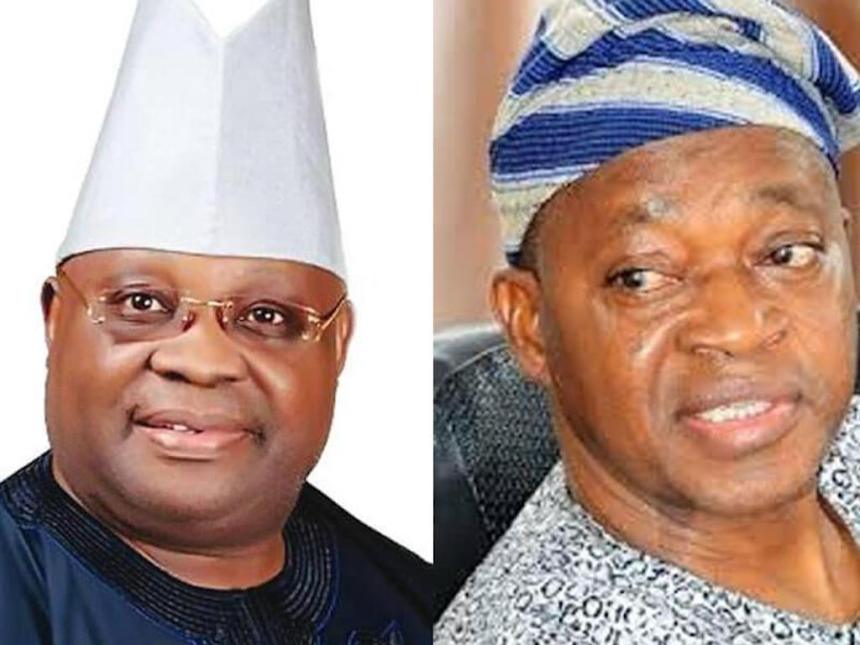The governorship candidate in the 2018 Osun gubernatorial election, Ademola Adeleke, has been defeated by Governor Adegboyega Oyetola via a supreme Co
The governorship candidate in the 2018 Osun gubernatorial election, Ademola Adeleke, has been defeated by Governor Adegboyega Oyetola via a supreme Court verdict which dismissed the appeal filed by the opposition candidate against the incumbent of the All Progressives Congress.
The apex court in a split decision of five to two members of the panel, on Friday, agreed substantially with the Court of Appeal which ruled that a majority judgement delivered at the tribunal was a nullity. The court said the judge who had read the majority judgement at the tribunal, Peter Obiora, was evidently absent on February 6th, 2019, following the documents before the court.
It agreed with the appeal court that the absence of Justice Obiora when a key witness in the petition was heard has rendered the judgment of the trial tribunal a nullity. And that the failure of Mr Obiora to be present on that day meant that the tribunal lacked the authorities to have given any judgment on the matter.
Justice Bode Rhodes- Vivour who delivered the majority judgment supported by five of the seven-justice of the Apex court panel held that it is settled law that when the rightly constituted panel of a court does not seat the activities carried out by that panel is a nullity.
The Acting Chief Justice of Nigeria, Justice Tanko Muhammad and three other members consented to the lead majority judgment. But Justice Kumai Akaahs and Justice Paul Galinje affirmed PDP as the winner of the poll. Justice Akaahs in his minority judgment held that the Independent National Electoral Commission (INEC) in an election ought to remain an unbiased umpire because even when it erred in law by relying on it’s manual to cancel some aspect of the election, the applicant still met the constitutional requirements of having the highest votes cast and spread.
But the Election umpire went ahead to cancel the election and carried out a rerun showing that INEC had a plan up its sleeves.
